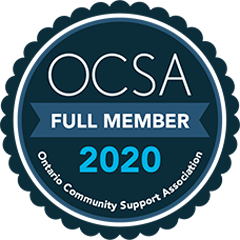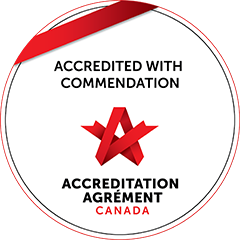Person and Family Centered Care
In 2016, Vista Centre Brain Injury Services (VCBIS) decided to make Person and Family Centered Care (PFCC) the foundation and principle aim of the organization.
In an effort to improve quality of care and safety, VCBIS realizes the importance of including the perspective of participants and families. The experience of care, as perceived by the participant and family, is a key factor in health care quality and safety.
Bringing the perspectives of participants and families directly into the planning, delivery, and evaluation of services and thereby improving its quality and safety is what PFCC is all about.
What is PFCC?
PFCC is an approach to the planning, delivery, and evaluation of health care that is grounded in mutually beneficial partnerships among participants, families, and health care providers. It is founded on the understanding that the family plays a vital role in ensuring the health and well-being of participants of all ages. In participant and family centered care, participants and families define their “family” and determine how they will participate in care and decision-making.
What is meant by family?
Person or persons who are related in any way (biologically, legally, or emotionally), including immediate relatives and other individuals in the participant’s support network. Family includes a participant’s extended family, partners, friends, advocates, guardians, and other individuals. The participant defines the makeup of their family, and has the right to include or not include family members in their care, and redefine the makeup of their family over time

How to get involved?
Individuals, who are interested to be involved with the PFCC steering Committee, should contact VCBIS by phone (613) 234-4747 or via e-mail at info@vistacentre.ca.
Those who make contact to express PFCC interest will be invited to attend an information session, and from there an informal Working Group will be formed based on those interested in participating on a go-forward basis (depending upon membership availability within the existing PFCC working group).
As a result, the PFCC working group will be comprised of participant/family advisors and staff members who expressed interest in becoming involved in PFCC initiatives.
The Four Principles of PFCC
Dignity and Respect
Health care providers listen to and honor participant and family perspectives and choices. Participant and family knowledge, values, beliefs and cultural backgrounds are incorporated into care planning and decision-making.
Information Sharing
Health care providers communicate and share complete and unbiased information with participants and families in ways that are affirming and useful.
Participants and families receive timely, complete, accurate information in order to effectively participate in care and decision-making.
Participation
Health care providers communicate and share complete and unbiased information with participants and families in ways that are affirming and useful.
Participants and families receive timely, complete, accurate information in order to effectively participate in care and decision-making.
Collaboration
Participants, families, and providers collaborate in policy and program development, implementation, and assessment; in health care facility design; and in professional education, as well as in the delivery of care.
Benefits of PFCC
- Better quality of care (according to providers and participants)
- Better participants and family satisfaction
- Fewer conflicts/complaints, misunderstandings
- Increase participant empowerment for self-management
- Improved participant functional outcomes (e.g., emotional well-being, independence)
- Greater involvement of family and support systems
- Increase adherence to care/support plan participants co-create
VCBIS will actively seek Engagement of participants and families to be involved in a PFCC Steering Committee/Working Group and act as Participant or Family advisors.
What is a Participants and Families as Advisors
An advisor is a participant or family member that has used the services of the organization; whom has been asked to become a partner to provide direct input and influence on policies, programs, and practices affecting care and services for participants and families.


